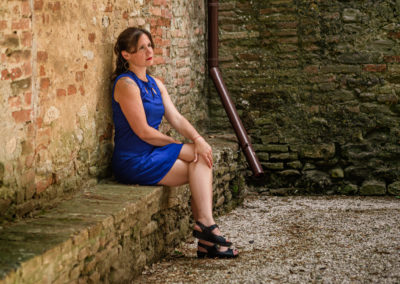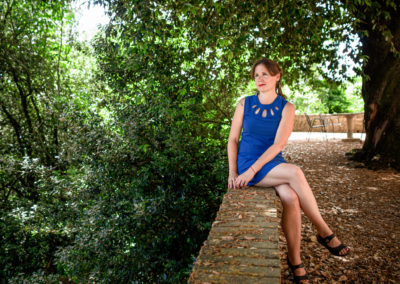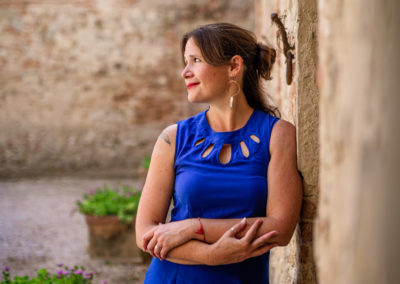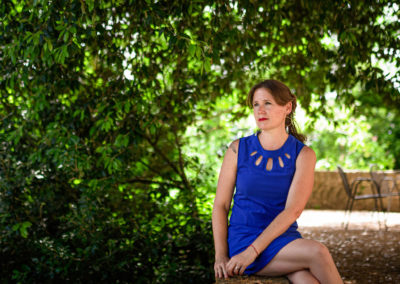I came to Civitella trying to finish a collection of essays (tentatively titled The Magic Kingdom of the Feral Victorians) that I’ve been working on for about a year and a half, and feeling as if I’d really lost clarity about how (and if) the project was working. Since I’m usually a poet, prose memoir (and trying to do justice to, and make sense of, the blurred lines between fantasy and reality within my family, which are at the heart of this project) has been challenging for me in so many ways I hadn’t anticipated. Being immersed in this brilliant creative community at Civitella, and daily conversations and questions about themes and processes and aesthetics, has helped me clarify what I’m trying to do with several of the essays, and to see my way through three essay revisions. The time here has also allowed me to draft most of a new essay, and I’m feeling confident that with this perspective and creative recharging I’ll be able to finish a draft of the manuscript by this fall/winter. I’ve also taken notes toward several poems, and started drafting the first poem in new series for an interdisciplinary project on gun violence . And finally, copies of my third book of poetry, Or What We’ll Call Desire, arrived when I was at Civitella, and I gave my first reading from it! The enthusiastic, smart conversations I’ve had with Fellows (from all disciplines) and others since that reading are already helping me to contextualize that project in new ways, as well as to consider additional artistic collaborations.
Self Portrait as Curious Lunatic’s Sketch of a Dancing Girl
An odd conception is the extra pair of eyes in a woman’s hat.
The American Weekly, 1921
I’ll tell it again: after my mother died, I danced on her chairs
in mad circles. It was only dancing because there was music
in another room. I needed her kitchen to be a carousel:
not flour, tablespoons, hands—but bright lacquered stallions
and bridles. I was only living because someone was breathing
inside my lungs. I needed extra eyes just to see her—her
hands as tablespoons of ash. I lacquered myself with bright
broken mirrors. I wanted the woman at Civic Center station
to be the tree she said she was. I needed more eyes to look
away. When men held her back, she cried, Don’t cut my branches.
We needed that train to hit us so we had reason to be broken.
It wasn’t just my mother. I was always afraid. I gave men
the saw and then cried Don’t cut my branches. Cried, hold me
together as I made self a collage. I feared both too much and
too little. It wasn’t just my mother, therapied back to 1962,
out-of-phase with self once too like a horror movie voice.
I was always collaging fear with cheaply built carnivals.
I climbed on the stallion, the ostrich, the fun house mirror.
Out of phase as the voice in The Exorcist—that corner of
mechanical and human, I curled up drunk in a police car
between the ostrich-feather palm trees of Key West. I
climbed in by choice. At the corner of Mechanical and
Human, I kept drunkenly asking the police to call
the number of the phone I was carrying. Who was I ever
but a girl climbing through the choices of being human?
Who was I as I slipped pills inside to slip outside myself
to dance? Some nights, I was the right number on redial.
When my nephew went mad, I said if our mother weren’t dead,
this would kill her. He swallowed pills to slip outside the self
who read Flannery O’Connor aloud in the cemetery to honor
her birthday. If she weren’t dead he would have let her pet
his pet rabbit. When he went mad, he spoke like a Western-
movie version of himself—born to gravel and the loud
grit of necessity. Anne Carson writes this is where the soul
- I was there when we buried him in a Western cemetery.
I helped carry his body. It was his 26th birthday. Did he
need that gun to explain why he was broken? What do any of us
become when we subtract the world, or add its necessities
to the grit and the lacquer? I will never not carry his body.
I will never not dance with these extra eyes in my hat.



